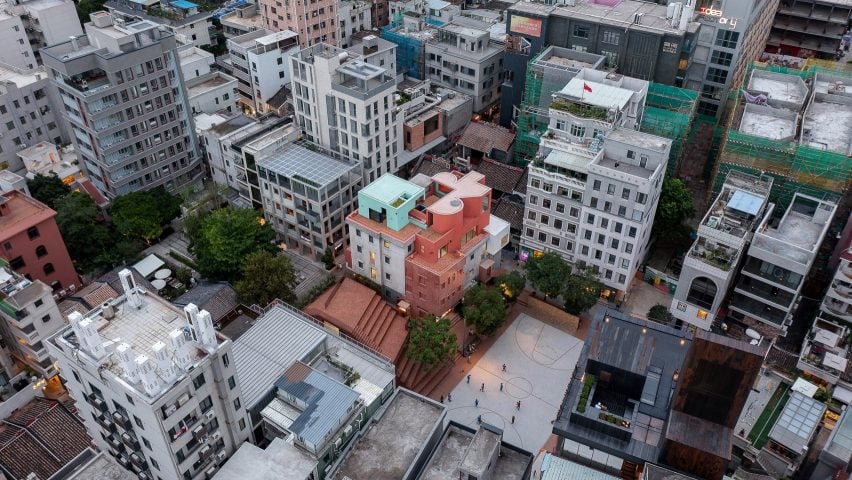
Urbanus adds colourful rooftop additions to Shenzhen block
Architecture studio Urbanus renovated and combined five buildings in Shenzhen, China, adding colourful additions and circulation.
Named Nantou Hybrid Building, the development unifies a cluster of five individual buildings built in the 1980s and 2000s next to Baode Square in the heart of Nantou Old Town in Shenzhen.
According to Urbanus it adopted a concept of "urban coexistence" for the project, preserving the contrast in materials, structure and styles of the existing buildings, while adding a new rooftop volume to connect them all.
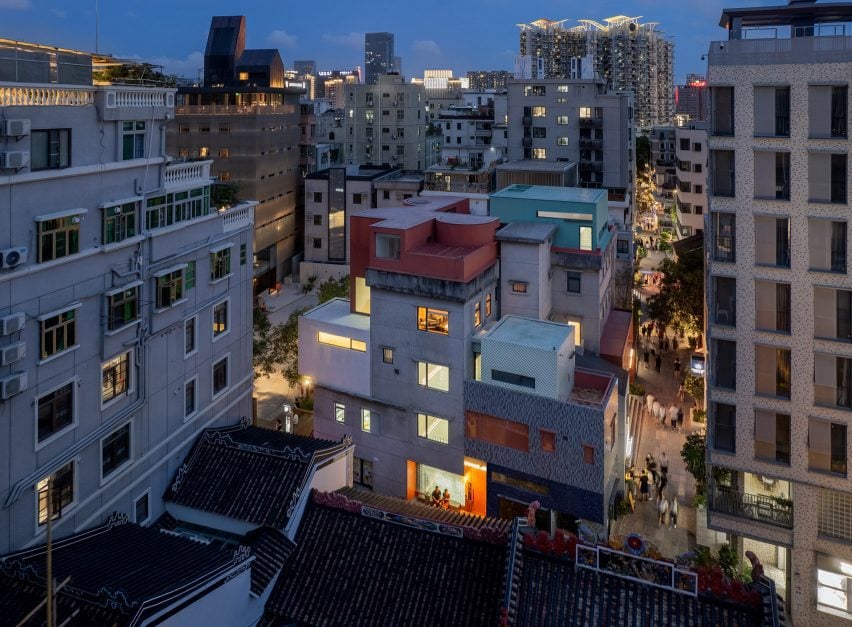
"This project focuses on preserving historical layers through collaging and juxtaposition, rather than replacement," explained Urbanus.
"The Nantou Hybrid Building stands as a testament to the evolving history of Shenzhen's urban villages," it continued.
"The renovation has reorganised chaos into coherence, creating an open, micro-complex within the densely populated Nantou Old Town."
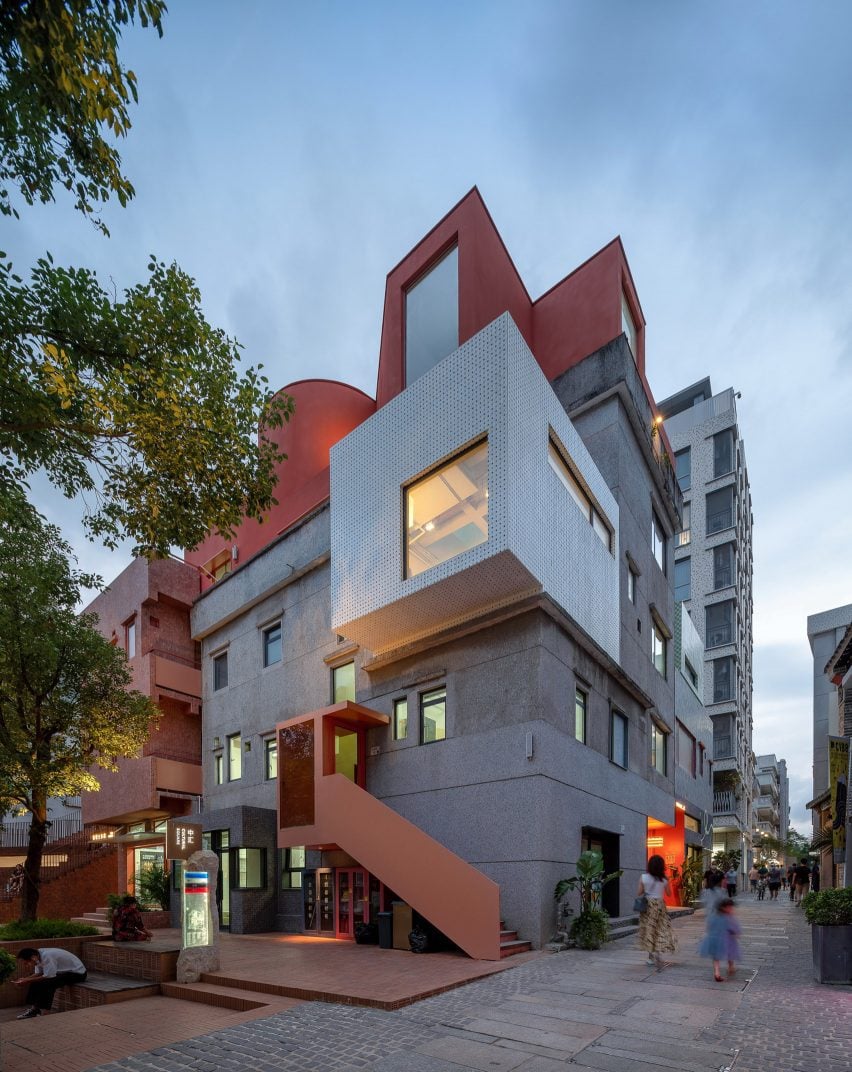
The existing facades were retained to ensure the structural integrity, while a central void was created to accommodate a new elevator and staircase connecting the buildings.
Communal spaces on each level were connected to the central core with balconies, footbridges and staircases with open corridors and passageways connecting the previously separate buildings.
Colourful paints were chosen to distinguish the new elements from the existing structures.
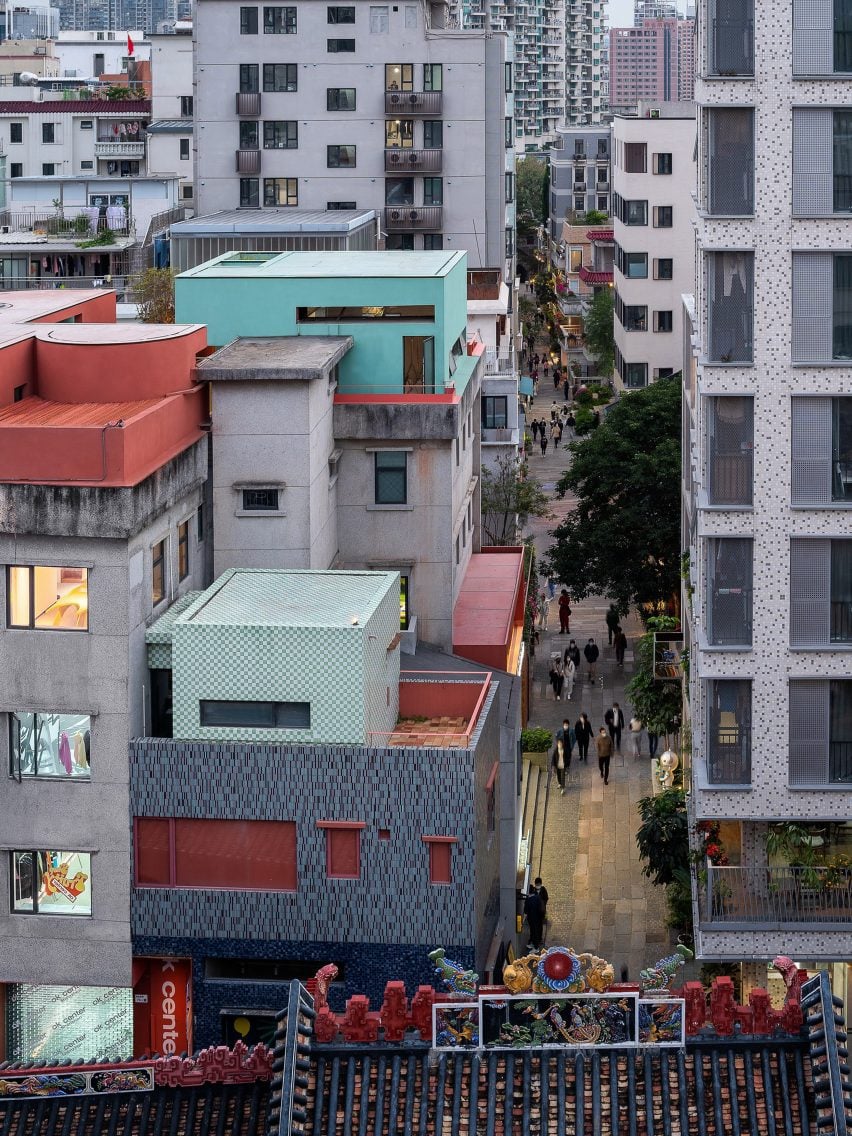
A red block with several semi-circular elements was added to the roofs of two buildings, while a green blocks adde to the roof of a separate building. On the lower building a small block with a chequered pattern was created,
Surrounding the additions an outdoor rooftop garden was created.
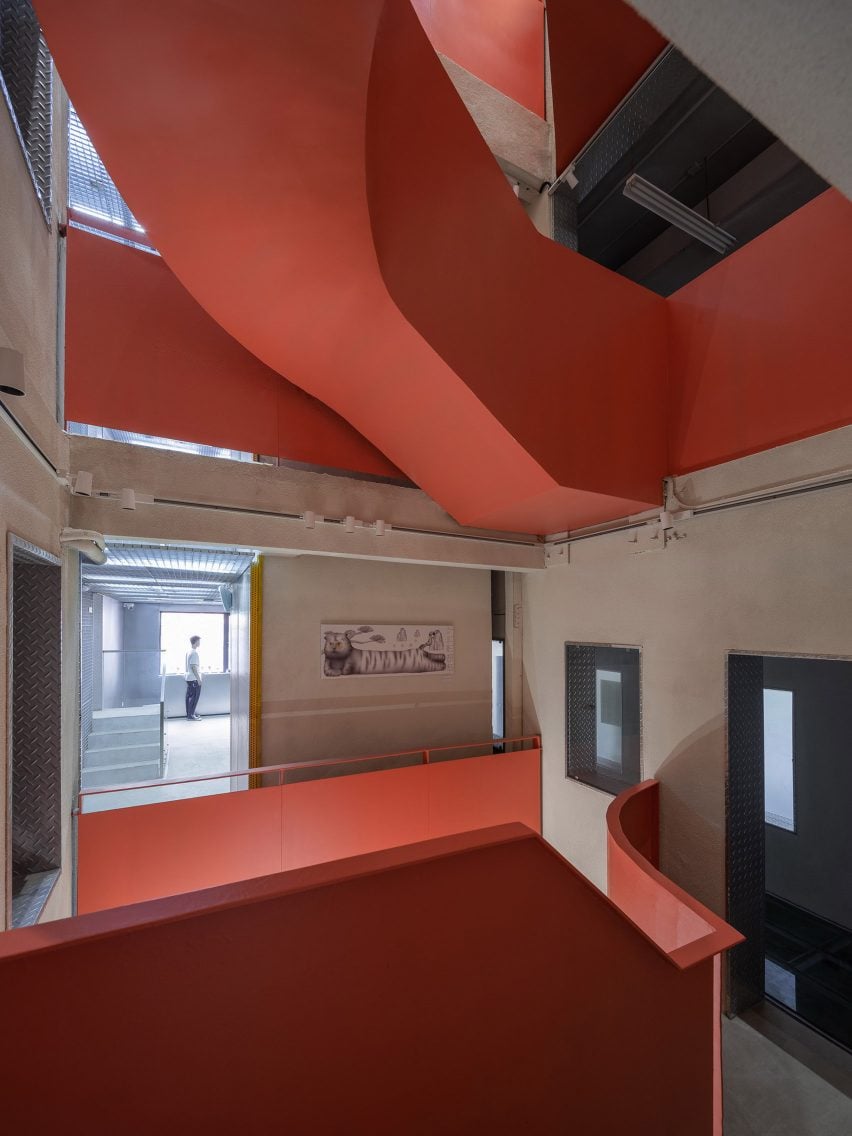
New semi-outdoor spaces on the ground floor were designed to complement the existing street level shops and stalls, offering a variety of programs to the surrounding community.
The building is accessed through the original entrances, with an additional staircase adapted from a preexisting outdoor staircase leading visitors directly to the first floor.
"Each part of the building, from the street-level shops and the interior spaces to the rooftop terrace, exudes a dynamic tension that leads to the ultimate revelation — a mini 'vertical arcadia' unfolding expansively, a serene haven tucked away above the urban bustle," said Ubanus.
"It meets the social and cultural demands of contemporary living and introduces a novel typology of vertical communal spaces that are both public and accessible," it added.
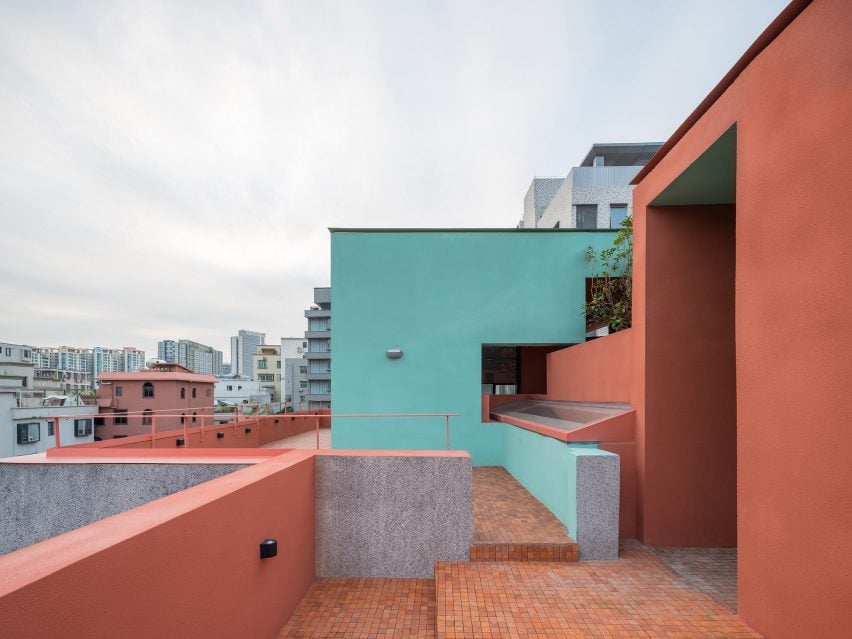
Urbanus was founded in 1999 and now has offices in Shenzhen and Beijing. Nantou Hybrid Building has been shortlisted in the mixed-use project category of Dezeen Awards 2024.
The studio has also transformed a former Chinese brewery into a cultural centre and created a cylindrical marriage registration office, both in Shenzhen.
The photography is by Zhang Chao.
Project credits:
Construction agency: Vanke
Principal architect: Meng Yan
Project general manager: Yao Xiaowei
Project architect: Jiang Qingzhou, Zheng Zhi, Zhang Chaoxian
Team: Rao Enchen, Huang Jiahong, Li Guanda (Landscape), Zhao Siying, Wu Xiaopeng (Internship)
Construction drawing: Bowan Architecture
Curtain wall: Pag Facade Systems Co., Limited
Lighting design: GD-Lighting Design